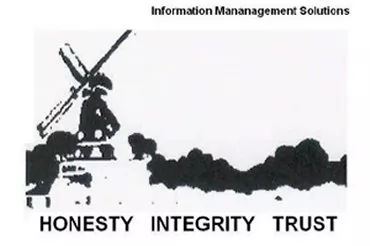A hard-hitting report by the US Department of State has headlined Antigua & Barbuda as a major money laundering jurisdiction.
In its annual report to Congress "The 2013 International Narcotics Control Strategy Report" the Department of State catalogues the efforts of key countries to attack all aspects of the international drug trade in the previous year. Volume I addresses drug and chemical control activities. Volume II, which names Antigua & Barbuda, records money laundering and financial crimes.
Volume II states, "Antigua and Barbuda is a significant offshore center that, despite recent improvements, remains susceptible to money laundering due to its offshore financial sector and Internet gaming industry.
Illicit proceeds from the transhipment of narcotics and from financial crimes occurring in the United States are laundered in Antigua and Barbuda.
During the past year, the Government of Antigua and Barbuda's Office of National Drug Control and Money Laundering Policy (ONDCP) compiled evidence that money laundering related to drug trafficking takes place through local financial institutions.
The ONDCP's analysis shows both that criminals abuse the system and financial institutions, in some instances, fail to apply sufficiently rigorous due diligence in relation to transactions that should be seen as questionable.
The funds involved include Eastern Caribbean dollars traced to the sale of local property by at least one person U.S authorities identified as trafficking drugs through Antigua and Barbuda to U.S. territory. Funds also include significant quantities of U.S. currency found in bank safety deposit boxes.
Domestic casinos are required to incorporate as domestic corporations. Internet gaming companies are required to incorporate as international business corporations (IBCs), and as such are required to have a physical presence.
Internet gaming sites are considered to have a physical presence when the primary servers and the key person are resident in Antigua and Barbuda.
The Government of Antigua and Barbuda (GOAB) receives approximately $2,800,000 per year from license fees and other charges related to the Internet gaming industry.
A nominal free trade zone in the country seeks to attract investment in areas the GOAB deems priority. Casinos and sports book-wagering operations in Antigua and Barbuda's free trade zone are supervised by the ONDCP and the Directorate of Offshore Gaming.
DO FINANCIAL INSTITUTIONS ENGAGE IN CURRENCY TRANSACTIONS RELATED TO INTERNATIONAL NARCOTICS TRAFFICKING THAT INCLUDE SIGNIFICANT AMOUNTS OF US CURRENCY; CURRENCY DERIVED FROM ILLEGAL SALES IN THE U.S.; OR THAT OTHERWISE SIGNIFICANTLY AFFECT THE U.S.: YES
REPORTING REQUIREMENTS:
Number of STRs received and time frame: 102: January 1 – November 7, 2012
Number of CTRs received and time frame: 591: January 1 – November 7, 2012
STR covered entities: Banks, agricultural credit institutions, money exchangers, notaries, gaming centers, and securities dealers
MONEY LAUNDERING CRIMINAL PROSECUTIONS/CONVICTIONS:
Prosecutions: 3 in 2012
Convictions: 3 in 2012
The GOAB should continue to work on strengthening all provisions of its AML/CFT legislation and enforcement."
Of course, locally, there are attempts by various parties to devalue this serious report claiming that it is based on old data and Antigua has moved on significantly in the twelve months since then to embrace modern professional standards of practise.
Making statements is one thing - behaviour and real action is another.
The former Financial Services regulator embroiled in the great Stanford money laundering matter has still not been extradited.
As reported in the 10th Report to Congress, the Half Moon Bay owners have not received one penny for the "nationalization/expropriation" of their property.
The newly initiated Citizenship by Investment Program is shrouded in secrecy regarding its applicants and the financial arrangements developed between them and the Office of the Prime Minister through which the Program is funnelled.
While the Attorney General can be heard to say in Antigua's Parliament, that "Antigua & Barbuda, in the scheme of things in respect of terrorism activity and money laundering is not really a high-profile country", public perception of the "small country" is also quite another matter.
An ever increasing number of popular authors now routinely use Antigua & Barbuda as their destination of choice for money laundering activity and transfer point for very dirty funds. More and more books by James Grippando, Christopher Reich, David Baldacci, Brad Thor, to name a few, regularly use St. John's in Antigua for settings of corrupt banking deals. "Our Kind of Traitor" by John Le Carre takes place primarily in Antigua. Tom Clancy's "Command Authority", links Antigua's banking practices to Russian organised crime and State corruption.
There is no doubt that, by virtue of also being his last work, Clancy's "Command Authority" is going to remain on the best-seller list for quite some time
Whilst acknowledging their stories are fiction, these top authors are globally renowned for their accuracy of research – and their influence on the perception of a wide variety of readers creates an indelible impression, which is hard to refute.
Despite the latest FATFA report, surprisingly grey-washing Antigua & Barbuda, being a known money laundering capital of the world will inevitably attract tourists.
Not the ones frightened away by the increasing gun, knife and recent machete crime but those seeking the benefits of the Citizenship by Investment Program, bearer shares, fugitives from justiceand ineffective regulation.
It shall be seen whether any legitimate foreign direct investment will follow suit.
Caveat emptor, investors!
The content of this article is intended to provide a general guide to the subject matter. Specialist advice should be sought about your specific circumstances.

